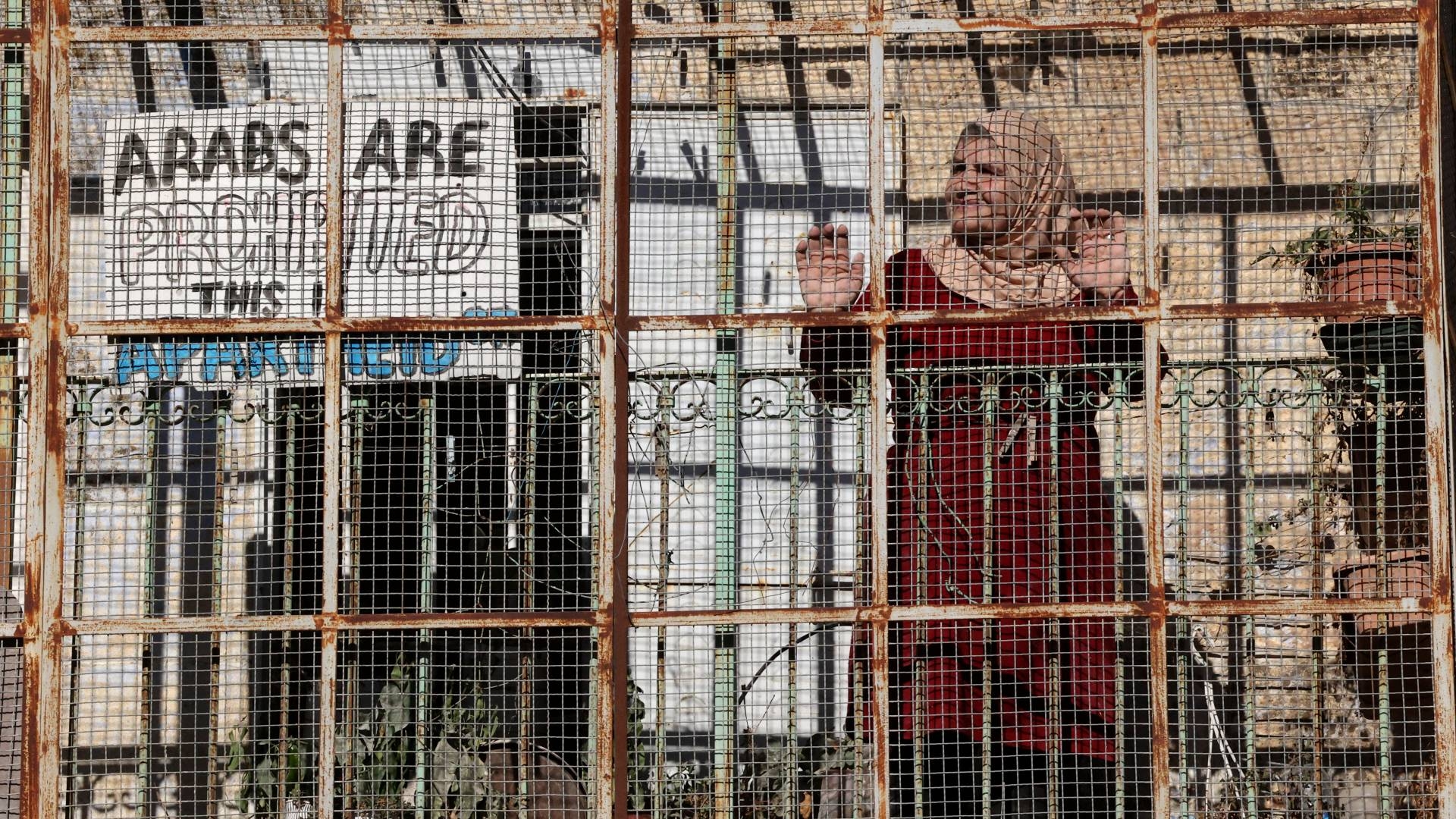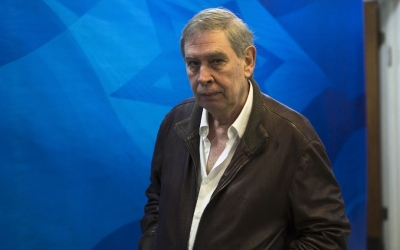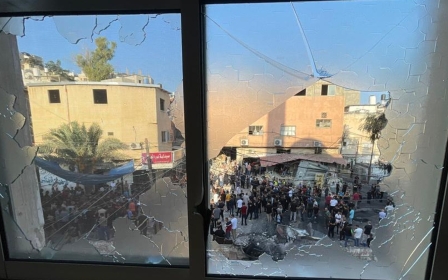Ex-Mossad chief's 'apartheid' criticism makes justifying occupation even harder

Comments by the former head of Israel’s Mossad intelligence agency, Tamir Pardo, that there is an “apartheid state” running through the occupied West Bank makes him one of the most senior officials to utter the word that Israeli politicians fear most.
Pardo made the statement in an interview with the Associated Press on Wednesday. “In a territory where two people are judged under two legal systems, that is an apartheid state," he said, referring to the Israeli occupation of the West Bank.
Pardo has become an ardent critic of the right-wing government headed by Prime Minister Benjamin Netanyahu.
In July, the former head of Mossad said he believed that the right-wing government ministers Itamar Ben Gvir and Bezalel Smotrich represented "horrible racist parties" that are "a lot worse" than US white supremacist groups.
Pardo’s latest comments should not come as all that surprising, according to Yonatan Touval, an analyst at the Israeli Institute for Regional Foreign Policies (Mitvim).
New MEE newsletter: Jerusalem Dispatch
Sign up to get the latest insights and analysis on Israel-Palestine, alongside Turkey Unpacked and other MEE newsletters
The remarks, Touval explained, likely reflect a “growing realisation that the apartheid-like reality in the West Bank is no longer the unintended consequence of continued Israeli occupation but, under the current government, the clear and unabashed intention pure and simple”.
In August, Ben Gvir affirmed in an interview with Israel's Channel 12 that his rights in the West Bank trumped those of Palestinians.
“My right - and my wife’s and my children’s right - to get around on the roads in Judea and Samaria is more important than the right to movement for Arabs,” said Ben Gvir, using names commonly used by Jewish nationalists for areas of the occupied West Bank.
Pardo also told the media that Israeli citizens are free to get in a car and drive wherever they choose, apart from the blockaded Gaza Strip, in comparison with Palestinians, who are forbidden from entering certain areas and have to pass heavily armed checkpoints.
'I really couldn't care less that a former Israeli Mossad chief has called the Israeli regime's colonisation of the West Bank apartheid'
- Yara Hawari, academic
Doubling down on his remarks, he concluded that his statements were “not extreme” but rather “fact”.
Pardo’s words might not have practical legal implications, said Touval, at least for now. But it may put the Israeli government on notice that the legal case justifying its behaviour in the occupied Palestinian territories is not as strong as it once imagined.
“Legal scholars might point out that Pardo’s comments could, in theory, bolster the case against potential defendants - say, an Israeli official - in that they establish the existence of awareness and perhaps even intention in the crime committed,” Touval told Middle East Eye.
“If, say, an international criminal tribunal were to try, say, the Israeli prime minister for the crime of apartheid, Pardo’s comments could help the prosecution make the case that the prime minister was made aware about the meaning of his actions and therefore had a culpable state of mind in committing them,” he added.
For now, at least, that remains a distant prospect. The more important change seemingly is that the term apartheid is being legitimised in Israeli discourse to describe the situation in the West Bank.
Cold comfort
For Palestinians, however, Pardo’s comments are of cold comfort.
“I really couldn't care less that a former Israeli Mossad chief has called the Israeli regime's colonisation of the West Bank apartheid. This is a man who was in charge of one of the most brutal mechanisms of the Zionist settler colonial regime - its intelligence agency,” said Yara Hawari, a Palestinian academic.
Rights groups have long argued that Israel’s policies discriminate against Palestinians.
In April 2021 Human Rights Watch found that Israeli authorities were committing crimes against humanity, apartheid and persecution, based on government policies that maintained the domination of Jewish Israelis over Palestinians.
The rights group has also documented grave abuses committed against Palestinians in the occupied West Bank and occupied East Jerusalem.
“As the Israeli regime moves further towards the 'right', the former [Mossad] chief is no doubt concerned that the liberal veneer of Zionist settler colonialism will be shattered. A surface-level critique is used to distract the masses from reality,” added Hawari on X, formerly known as Twitter.
A growing chorus
Pardo is one of the latest in a growing number of figures to call out Israel for apartheid. Last month, a former top general in the Israeli military said that Israel's treatment of Palestinians in the occupied West Bank resembled Nazi Germany and is "total apartheid".
Amiram Levin, former head of the army's northern command, made the comments on Kan, the Israeli public broadcaster.
"There hasn't been a democracy there in 57 years. There is total apartheid," Levin said, referring to the situation in the West Bank.
He said the Israeli army was "forced to exert sovereignty there" and is "rotting from the inside".
He added: "It's standing by, looking at the settler rioters and is beginning to be a partner to war crimes. These are deep processes."
Two former Israeli ambassadors to South Africa have also said that Israel was maintaining a “two-tiered legal system”, which is of “inherent inequality” and that “Israel has worked to change both the geography and the demography of the West Bank through the construction of settlements, which are illegal under international law”.
Middle East Eye delivers independent and unrivalled coverage and analysis of the Middle East, North Africa and beyond. To learn more about republishing this content and the associated fees, please fill out this form. More about MEE can be found here.





